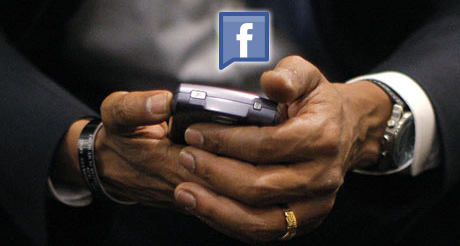The future US President's Facebook page politics

Just like Issac Newton playing in the mud as a child, or William Shakespeare being aged seven in an English class at school, the future President of the United States will almost certainly be on Facebook. It's hard to consider really, isn't it?

Think of the bog standard, average person of my age today. I am about to hit the grand age of 22, I have a Facebook account I've had now for five years, a Twitter account I was initially reluctant about, more paid online services subscribed to than I have utility bills for my house, and am still in full time university education.
I have put so much personally identifiable and unique information about myself online, directly and indirectly, to the point where in a few years time - and granted, this blog hasn't exactly helped things per se, I could seriously struggle to get a job in the area I want my career to go.
My post-graduate research will be an MA (PDip) in International Security and the Politics of Terror which if you hadn't guessed by that, my career choice is aiming towards counter-terrorism. It just so happens that this particular career choice is very much focused in the public sector and in government, and this would require the highest level of national security clearance. I strongly suspect that my curse-word-ridden and highly explicit Twitter feed will rule me out of this single-handedly.
Two weeks to the day, I slipped out a comment I should have really spent some time elaborating upon more:
"I strongly suspect that our own social network content in particular will bide its time to risk sabotaging the future careers of all of the aforementioned and more. Think about it. A future president of the United States is probably in college right now with no clue that he (hopefully she) will be elevated to the White House in years to come."
The damage has already been done for the very vast majority of the students worldwide who will hope one day elevate to high positions of office and industry.
The fact of the matter is, is that regardless of what you may think of the iGeneration or the Generation Y, the simple truth that the people from my generation will one day take positions of high office. It is impossible to avoid and is an absolute inevitability.
Yet the issues of privacy that we face today are mediocre in manner to the potential for cataclysmic career ending events to occur. The data as we have already proven does not get deleted and becomes propagated to third party organisations and companies, which in turn use the data to target advertising based on your personal information - information that you, the future President of the United States has put on there.
Of course personal privacy will hold some weight, yet similarly there is no major difference to world leaders today having personal photos from the past being published in the press. President Sarkozy of France for example, to celebrate twenty years of the wall falling released a photograph of his efforts to bringing down the wall as a younger man. However ammunition like this was used against him by widespread discreditation with reasons to believe he arrived a week later.
This in proportion is minor; a scrape to his reputation and hardly a scratch to the credibility of his administration. But just think of the sordid, unrestricted photos of the student days, showing drugs, drinking and partying in gratuitous detail. This will show them to be more human in this liberalised then-youth movement and the times of the then-Generation Y will reflect it as such, but it will not be all inclusive to the surviving older generations.
There are two simple considerations to take into account. Firstly, consider the potential you have on the world that you will soon become a part of, and the breadth of power you could one day wield. And secondly, to perhaps recognise that we are all in fact human and that - maybe we as a generation should become more forgiving of our not-yet-committed but soon to be past indiscretions.